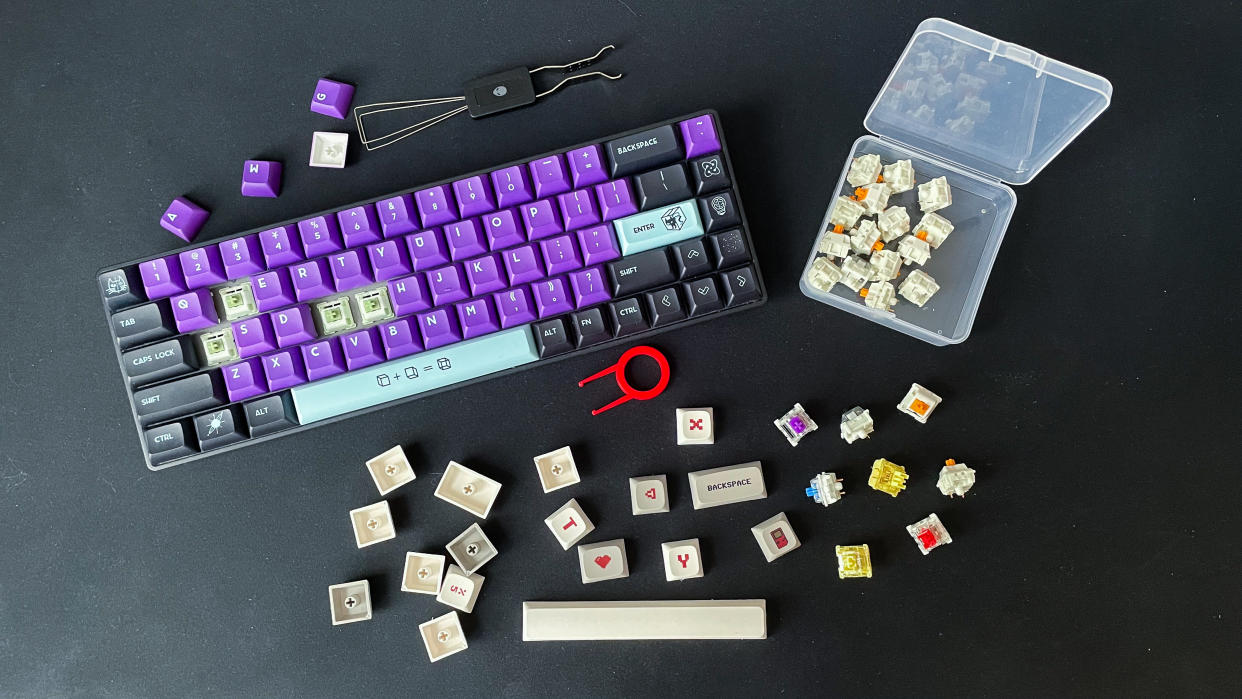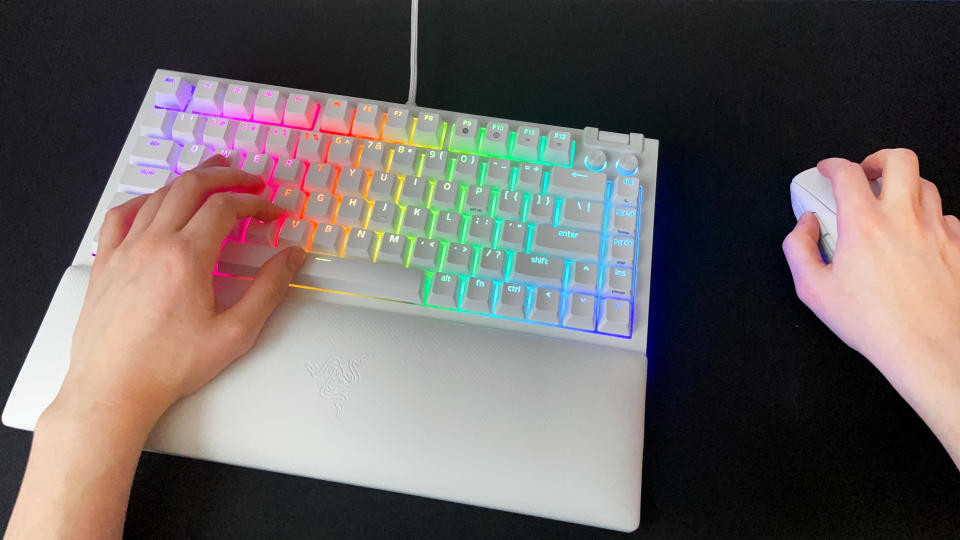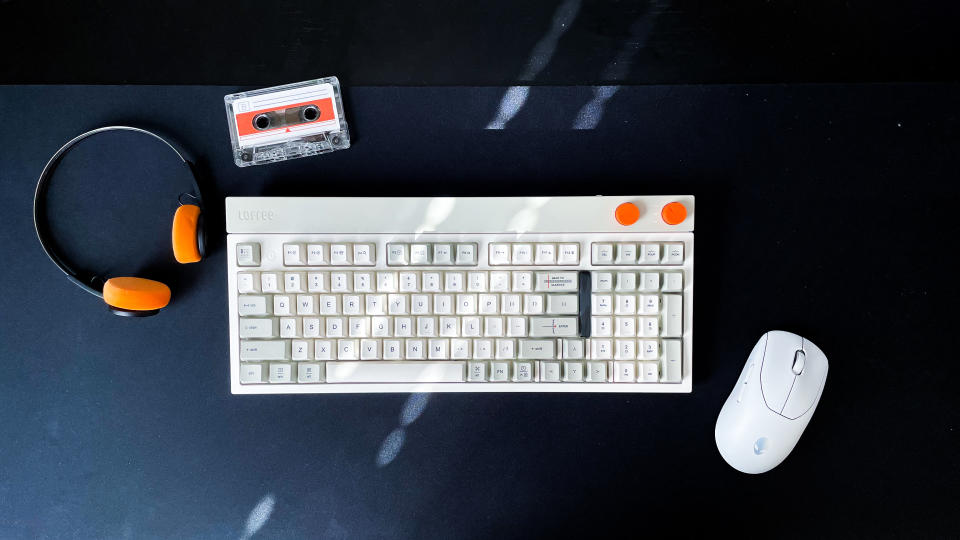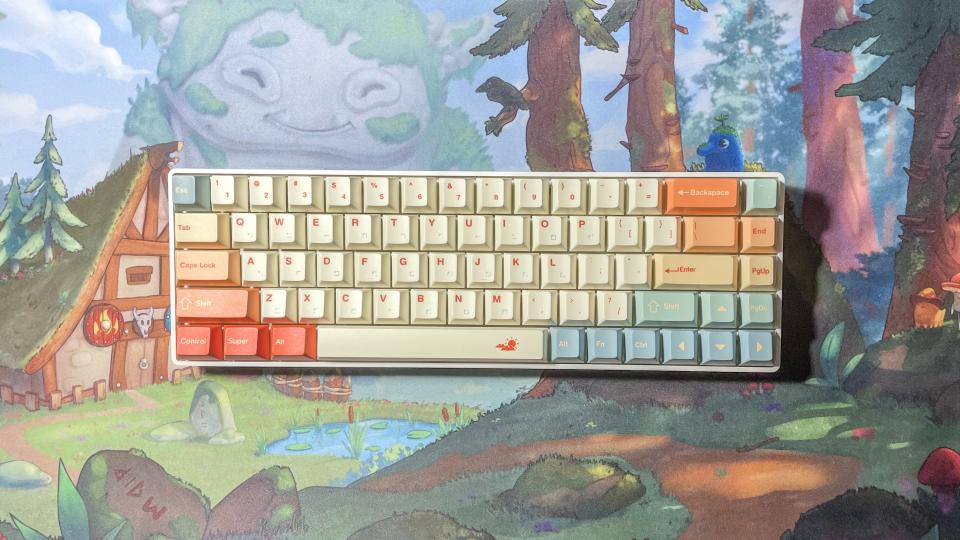Custom mechanical keyboards vs. pre-built: Should you buy or build your keyboard?

Is it better to build a custom mechanical keyboard or buy a pre-built model? If you’re searching for your first mechanical keyboard, this question is probably top of your mind. I love mechanical keyboards. I’ve built and tested many of them over the years, so I have plenty of experience with both custom and pre-built options.
There are definitely pros and cons to custom versus pre-built mechanical keyboards. Both can be great for typing and gaming, but it’s important to know a few key differences before you buy one or the other.
This guide breaks down the differences into a few basic categories to help you figure out which type of mechanical keyboard is right for you.
Custom vs pre-built mechanical keyboards: Price and quality

One of the first things people who are new to mechanical keyboards want to know is how much they should spend. Regardless of whether you choose to get a pre-built keyboard or build your own, aim to spend at least $50, ideally around $100.
When it comes to price, pre-built keyboards have an edge. Since they’re mass-produced, you effectively save money by getting the same thing as thousands of other people. So, if you want to get into mechanical keyboards for less than $100, you should probably go with a pre-built keyboard.
What about quality, though? When you build your own mechanical keyboard, you have a lot more control over how the finished board turns out. If you want a specific size, look, sound, and switch speed, you can make that happen with a custom build.
However, that does mean you have to do plenty of research to make sure you choose the right components. Since you’re building a unique keyboard, it will probably cost more than something mass-produced.
In contrast, manufacturers spend months designing pre-built mechanical keyboards. So, when you buy a good pre-built keyboard, you can often safely assume it will sound and feel great right out of the box. That’s not always the case, of course, but there is definitely more consistency with pre-built keyboards in terms of quality and performance. That’s part of why the best gaming keyboards are all pre-built models.
With custom mechanical keyboards, you get what you design. With pre-built mechanical keyboards, you get what you pay for.
Custom vs pre-built mechanical keyboards: Complexity

If you have a budget of $100 or more, you can get a great keyboard regardless of whether you custom-build it or buy it pre-built. The real deciding factor beyond price is complexity.
I’ll be honest here – building a custom mechanical keyboard can be pretty complicated. There are ways to make it easier (more on that below), but it can be a little overwhelming for beginners.
The actual process of assembling a basic custom keyboard build is straightforward. It’s everything that comes before that which can be challenging. You need several parts including keycaps, switches, stabilizers, a PCB, a mounting plate, sound-dampening material, and a case. A lot of research is required to select all those parts, particularly your switches, stabilizers, case, and sound-dampening layers.
If that sounds daunting or like too much work, you’re probably better off going with a pre-built keyboard. The complexity of custom mechanical keyboards can make the build process rewarding, though. If you’re interested in tinkering with keyboards as a hobby, building your own is a great opportunity to learn about all the different components and the assembly process.
Alternatives: DIY kits and hot-swappable pre-built keyboards

What if you want to get into customizing keyboards but you’re nervous about the complexity of your first build? There are a couple of middle-ground options that can give you the best of both worlds.
The first is DIY kits. These dramatically simplify the custom keyboard build process and streamline it down to three parts: keycaps, switches, and a case kit. DIY keyboard kits come with the case, PCB, plate, sound-dampening foam, and stabilizers already assembled and ready to go. All you have to do is install your switches and keycaps.
I highly recommend DIY kits for beginners. They allow you to get started with mechanical keyboards without overwhelming you. At the same time, you’ll still have the freedom to customize any parts in the kit if you want to down the road.
The second alternative option is a hot-swappable pre-built keyboard. You should always try to choose a hot-swappable keyboard, regardless of whether it’s pre-built or a DIY kit. Hot-swappable keyboards don’t have the switches soldered on, so you can easily change them with any compatible 3 or 5-prong switches.
A hot-swappable pre-built mechanical keyboard removes the extra complexity of assembly while still leaving room for some customization. If you’re just casually interested in trying out new switches or doing some minor customization, this is often the best option.
Bottom line: Hobby vs device
Ultimately, the decision about whether you should get a pre-built mechanical keyboard or customize your own comes down to one core difference. Do you want your mechanical keyboard to be a hobby or a device?
Many people approach custom mechanical keyboards as a hobby, constantly trying out new parts and modifications. It can be a lot of fun to mix and match switches, keycaps, cases, and other components to build a completely unique keyboard.
This approach tends to be more expensive since you’re continually making improvements and changes to your keyboards. However, the cost pays off in creative freedom. If that sounds like fun, your first mechanical keyboard should be a custom build.
On the other hand, if you just want a device to type or game with, you’ll probably be better off with a pre-built mechanical keyboard. All the work to choose and assemble the parts for a custom build is only worth it if you’re looking for something highly specific or you want to get into keyboards as a hobby.
If you’re not interested in that, there are plenty of great pre-built keyboards for typing and gaming, such as the Lofree Block or the Alienware Pro Wireless gaming keyboard.
